From Diagnosis to Determination: Lou Lanza’s Commitment to Survivorship Advocacy
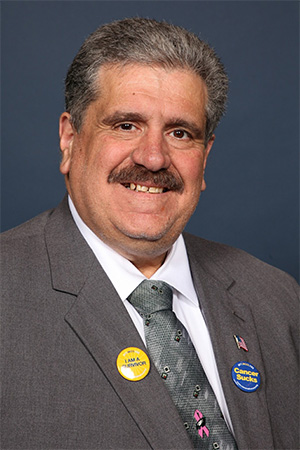 Advocate Spotlight: Lou Lanza
Advocate Spotlight: Lou Lanza
“Hearing the words ‘you have cancer’ is like getting hit by a bus,” recalls Lou Lanza of the moment he received the news. Lou, who often traveled to remote work sites in his role as a mechanical engineer, had been regularly visiting his primary care doctor in 2004 because he was struggling to lay flat and had difficulty sleeping. Initially diagnosed with sleep apnea and allergies, he spent much of that late December holiday season feeling exhausted and ill. Prompted by Dorothy, his wife, to go to the hospital on New Year’s Day in 2005, an x-ray revealed the large mass in Lou’s chest.
Diagnosed with stage IIa Large B Cell Non-Hodgkin’s Lymphoma, “I immediately thought of my mother,” says Lou, whose mom died of Hodgkin’s Lymphoma when he was 19. “I thought of all the things she missed, like seeing her children grow up, succeed, get married. Now, I regretted all the time I’d spent away from my family for work. I’d already missed so much. What more would I miss in the future?”
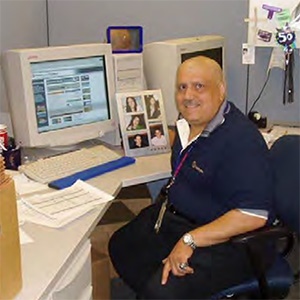
With the encouragement of his oncologist, Lou’s worries turned into determination. “I can have cancer,” he thought, “but cancer cannot have me.” This mindset carried him through his treatment and propelled him toward purposeful advocacy work.
Inspired by his own experience and a desire to “ease the course of others,” Lou joined the Buddy Program at Jefferson Hospital, mentoring newly diagnosed patients. His involvement soon expanded to national advocacy work. Guided by the mentorship of the late Ellen Stovall, Lou contributed as a patient consultant for the National Committee for Quality Assurance’s Patient-Centered Oncology Care Pilot Practice Collaborative, helping practices improve patient-centered care.
Today, Lou’s advocacy reaches across multiple organizations. He mentors patients through the Cleveland Clinic’s 4th Angel Program and the Cancer Hope Network. He volunteers at the American Cancer Society’s Hope Lodge in Philadelphia, participates in legislative advocacy through ACS CAN, and supports research funding at the annual Rally for Medical Research in Washington, D.C.
Lou’s dedication extends to serving on advisory panels, presenting at conferences, and contributing to programs like Bag It Cancer and the Cancer Support Community of Greater Philadelphia. “Being able to thank the caregivers, who I believe are the real heroes in anyone’s road to survivorship, has been the most rewarding achievement,” he shares.
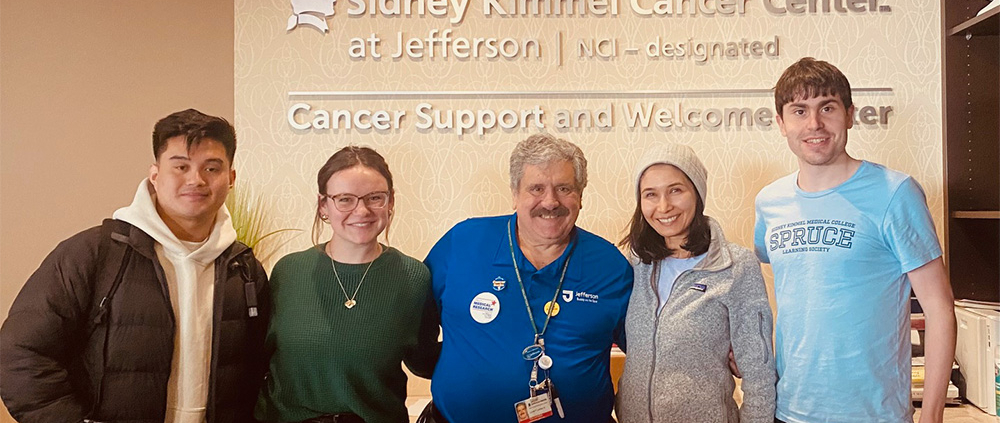
Lou’s advocacy work is deeply personal, extending beyond his personal diagnosis. In addition to having lost his mother to cancer when he was a teenager, Lou also lost his middle sister to glioblastoma. To honor her, he serves on the planning committee for the National Brain Tumor Society’s Philadelphia Race for Hope.
Lou says his involvement with the National Coalition for Cancer Survivorship (NCCS) has been a cornerstone of his advocacy work. First introduced to NCCS at the 2016 Cancer Policy and Advocacy Team (CPAT) Symposium, Lou immediately connected with its mission. “NCCS is the core of survivorship,” he says.
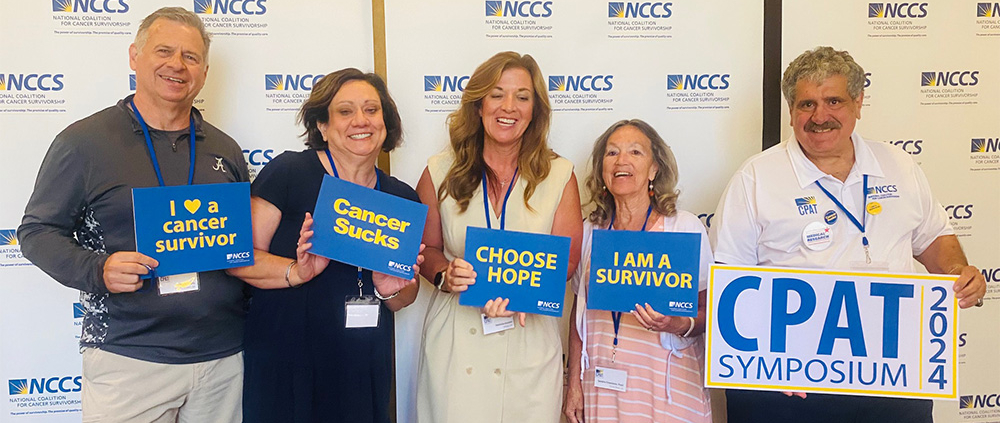
Through NCCS, Lou has built relationships with survivors and advocates from across the country. He has attended every CPAT Symposium since 2016, served as a speaker and committee member, and participated in the Elevating Survivorship program. These experiences have shaped his approach to advocacy, inspiring him and giving him the foundation he needed to branch out and engage with other organizations.
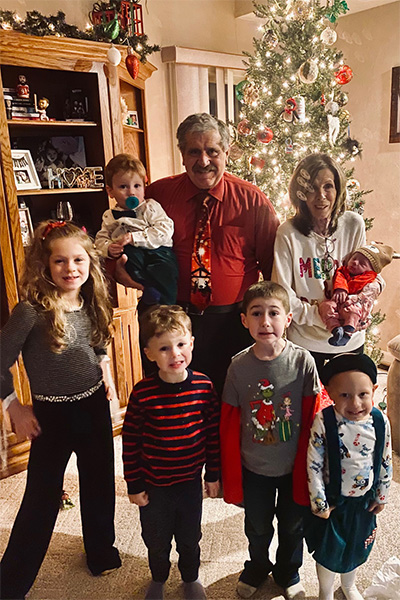
Advocacy can be time-consuming, Lou recognizes. For him, family always comes first. Despite his extensive commitments, he ensures his advocacy work never overshadows his role as a husband, father, and grandfather. “If there is a conflict, family comes first,” he states unequivocally. His wife and children provide not only unwavering support but also serve as a grounding force when the demands of advocacy become overwhelming.
Lou’s message to others considering advocacy is clear: “The relationships you develop will be lifelong and support your advocacy mission.” Whether through NCCS or other organizations, Lou encourages survivors and caregivers to get involved, reminding them that advocacy provides a sense of purpose and a platform to amplify their voices. “You will get back tenfold what you put in,” he says.
Learn more about NCCS’s CPAT program for advocates and join for free.
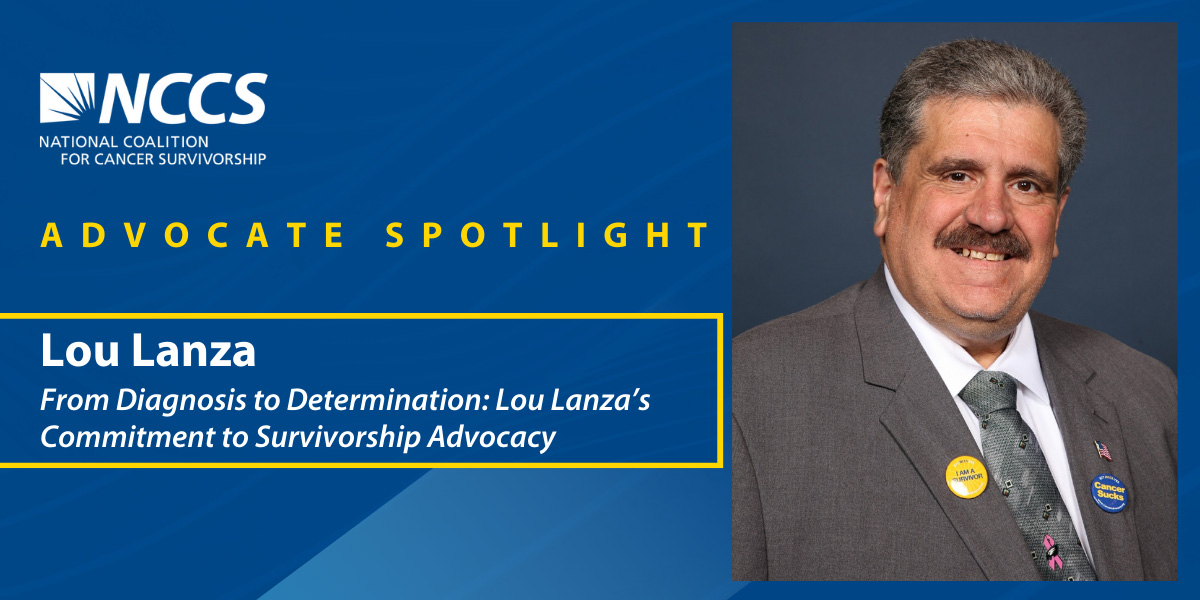
 2005, The Carter Center
2005, The Carter Center
